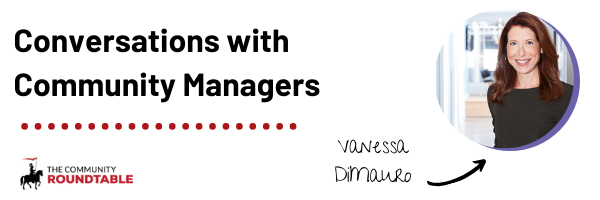
Join the community experts at The Community Roundtable as they chat about online community management best practices with a wide range of global community professionals. Topics include increasing online audience engagement, finding and leveraging executive stakeholders, defining and calculating online community ROI and more. Find more episodes.
Episode #63 features Vanessa DiMauro, Vice President at Georgian Partners.
Vanessa shares her unique perspective on trust as a competitive differentiator. She also shares best practices for fostering trust using technology and community, and effective ways to align community goals with business goals.
This episode of Conversations with Community Managers is sponsored by Telligent.
Podcast: Play in new window | Download
 In a nutshell, that’s the message of a new whitepaper from
In a nutshell, that’s the message of a new whitepaper from 
